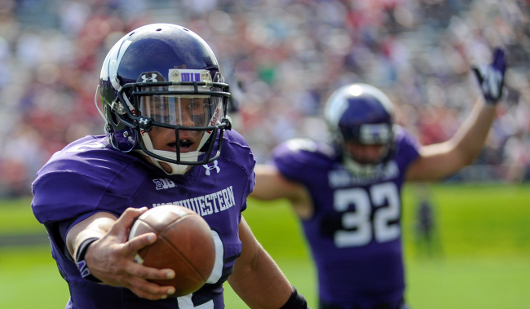Should College Athletes Get Paid?
The NCAA is a big business. The organization pulls in about $1 billion a year and some players, who, after all, are the ones doing the most to generate that revenue, are beginning to wonder why they never see any of that money. Despite all of the NCAA’s posturing about the integrity of amateur athletics and their supposed commitment to student-athletes, some athletes feel underrepresented enough to the point that they are trying to form a union.
At the bottom of this movement is a sense that times have changed. Gone are the days when sports were just another extracurricular activity. Being an athlete today, even at smaller schools like High Point University or Eastern Kentucky, means going to school and having a full time job—a job you don’t get paid for.
“Ah, but they do get paid!” lots of people love to say in response, “They just don’t appreciate the value of a free college education!” The problem with this argument is that it doesn’t consider how much a scholarship doesn’t cover. A recent report from Drexel University calculated that even athletes with full scholarships still had $3,285 in other expenses.
Remember earlier this year when UConn basketball star Shabazz Napier told reporters he sometimes goes to bed hungry? That wasn’t an isolated incident. In 1995, UCLA football player Donnie Edwards told a radio show he didn’t have any food in his fridge. He came home to find groceries on his doorstep. The NCAA, in its eternal wisdom and compassion, promptly suspended him for accepting a gift that threatened his amateur status.
In the wake of Shabazz’s comments, the NCAA has since changed its rules to allow students to get unlimited free meals and snacks from their schools, but that still leaves out the cost of other necessities like clothes and books, which would be covered by a full time job they don’t have time for. The fact is many players come from disadvantaged socio-economic backgrounds and can’t just run to mom and dad for something like an unsecured business loan every time their bank accounts get low.
Not to mention that if a student gets injured while bringing in money for the NCAA, they are in danger of losing their scholarship and will have nothing to show for their years of work (which only benefitted a huge organization that seems more and more like it cares more about revenue than its student athletes).
But though it sounds good in theory, paying players starts to fall apart a bit when you actually consider the logistics of it. What about smaller schools whose sports programs don’t turn a profit? Do all sports get paid equally? Is someone on the fencing team going to make as much as a football player? The NCAA’s phony cries about the necessity of maintaining amateur status don’t make for much a counter-argument, but the difficulty of installing such a system just might.
Perhaps a reevaluation of the nature of a full scholarship is in order instead. There’s no reason the scholarship shouldn’t be guaranteed for all four years and I don’t think including a meal plan in the deal is too much to ask. Also, schools should provide health insurance to cover the potential of lifelong injuries athletes could sustain while playing under a scholarship. A free education isn’t much use if a player’s brain is permanently addled from concussions.
And though it may be difficult to implement, a reasonable stipend for living expenses really shouldn’t ruin the athletes’ amateur status that the NCAA pretends to care so much about. No one is saying players should be paid on a level with professionals, but it’s hard to see how anyone could argue that making sure players can clothe and feed themselves would ruin college sports.

